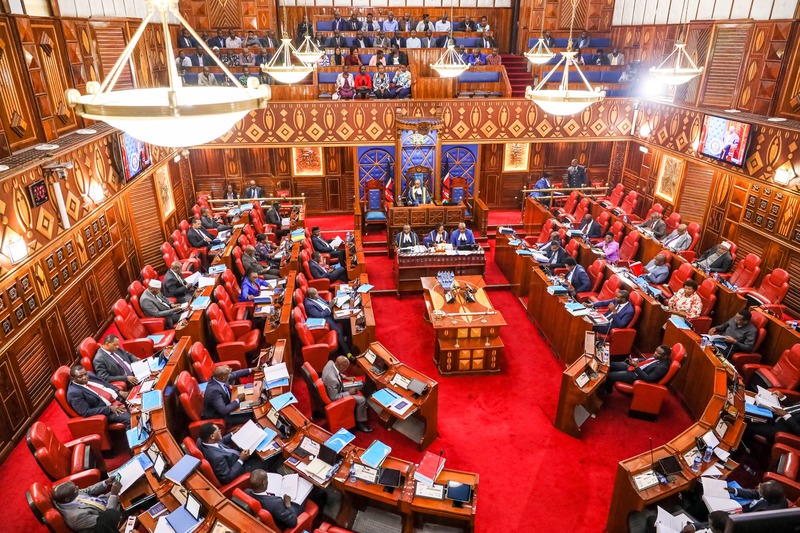Nairobi landowners to pay new rates starting January 2025, Sakaja says

The changes aim to align the rates with current property values and improve transparency in revenue collection.
Landowners in Nairobi will begin paying revised land rates from January 1, 2025, as announced by Governor Johnson Sakaja.
The new rates, based on land size and value, range between Sh2,560 to Sh4,800 annually, with residential, commercial, and agricultural plots taxed at 0.115 per cent of their value.
More To Read
- City Hall to launch crackdown on unauthorised buildings after regularisation deadline, Sakaja says
- Nairobi County issues new land rate structure effective January 2026
- Nairobi seeks Sh54 billion from land rates, considers shift to property utilisation tax
- City Hall to register roadside vendors in drive to widen tax base
- Githurai MCA asks EACC to probe Sh17 Million roadworks irregularities
- Court bars Kajiado County from levying land rates on freehold properties
The changes were outlined in a gazette notice by the county's Executive for Built Environment and Urban Planning Patrick Mbogo.
"In exercise of the power conferred by section 15 (1) of the Rating Act (Cap. 267) and Section 18 of the Valuation for Rating Act (Cap. 266), notice is given to the general public that land rates levied by the Nairobi City County Government for the year 2025 shall become due on the 1st January 2025," reads the notice dated November 29, 2024.
For landowners with plots under 0.1 hectares, the annual rate is set at Sh2,560, while plots between 0.1 and 0.2 hectares will attract Sh3,200.
Those with land between 0.2 and 0.4 hectares will pay Sh4,000, and plots exceeding 0.4 hectares will incur Sh4,800. Residential, commercial, and agricultural properties will be taxed at 0.115 per cent of their land value per year.
However, specific provisions have been made to address discrepancies and disputes. If the new rates are lower than the 2022 rates, property owners will pay the 2022 rates.
Equally, if the new rates exceed double the 2022 rates, landlords will pay double the previous rates as per the 2019 draft valuation roll.
For those with objections or whose properties are missing from the valuation roll, the county directed that they continue paying the old rates until their cases are resolved by the Valuation Court.
"All persons/entities who had objected to the new rates as per the 2019 Draft Valuation Roll shall pay the old rates pending the hearing and determination of their respective objections," the notice clarified.
Additionally, sectional title holders must now open individual rates accounts, while landowners with unvalued or omitted land have been advised to contact the Chief Valuer at City Hall.
The changes aim to align the rates with current property values and improve transparency in revenue collection.
Nairobi's own source revenue is normally generated by revenue streams.
The six key own-source revenue streams include parking fees, rates, single business permits, house rents, building permits, and, billboards and adverts accounting for close to 80 per cent of the county's annual own-source revenue.
Land rates are the top own-source revenue earner in Nairobi accounting for about 25 per cent of revenue collected by the county government.
Earlier this year, Governor Sakaja had announced a one-month extension to the penalty waiver on land rates.
Over time, the county government has been providing rent waivers to residents living in county-owned houses. These houses, numbering 17,000, are located in various neighbourhoods including Maringo, Uhuru, Kaloleni, Jericho, Buruburu, Kariobangi South, Ziwani, and Jerusalem.
Rent for these houses ranges from Sh2,000 to Sh20,000 per month, depending on the location. Additionally, the county owns houses in other areas within the city.
According to Section 7 of the Nairobi City County Waiver Administration Act of 2013, any rent waiver granted must be reported to the County Assembly and published in the gazette notice within 14 days of its issuance.
Reports indicate that Nairobi is experiencing a loss in revenue due to residents' failure to pay rates promptly.
Top Stories Today










































